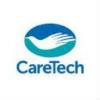Deputy Manager
East Kilbride, SCT, GB, United Kingdom
Job Description
The main responsibilities of the Deputy Manager (Clinical) are to involve people in decisions about their care and support, therefore enabling people to exercise their basic human rights. The information gathered will be reflected within the persons' care plan. This empowers people to have a 'voice' and enables individuals to experience high quality care and support that is right for the individual person (Care Inspectorate, 2017). Engaging and involving people demonstrates how we facilitate dignity, respect and compassion, as well as promoting people's wellbeing.
Also, it is the responsibility of the Deputy Manager to adhere to the NMC Code of Conduct known as 'The Code'. This contains the professional standards that registered nurses, midwives and nursing associates1 must uphold. Nurses, midwives and nursing associates must act in line with the Code, whether they are providing direct care to individuals, groups or communities or bringing their professional knowledge to bear on nursing and midwifery practice in other roles, such as leadership, education, or research. The values and principles set out in the Code can be applied in a range of different practice settings, but they are not negotiable or discretionary.
In addition, it is the responsibility of the Deputy Manager to manage the care home in the absence of the Home Manager.
Reports to:
Home Manager.Responsible to:
Operations Team.Main Roles & Responsibilities:
Show kindness, compassion and respect, as well as treating each person as an individual.
Enable people to exercise their 'Human Rights' and make 'Choices' about their care, whilst maintaining their respect, privacy and dignity.
Respect the level to which people receiving care want to be involved in decisions about their own health, care and support.
Respect, support and document a person's right to accept or decline care and treatment.
Accurately identify, observe and assess signs of normal or worsening physical and mental health.
Balance the need to always act in the best interests of people with the requirement to respect a person's right to accept or decline care.
Complete records accurately and without any falsification, taking immediate and appropriate action if you become aware that someone has not maintained accurate record keeping.
Documentation to be recorded clearly, dated and timed, and do not include unnecessary abbreviations, jargon or speculation.
Form open, positive relationships and maintain professional boundaries with individuals, colleagues or relatives and respect their dignity, wellbeing and safety.
Acknowledge an individual's Personhood(the status of being a person ie 'seeing the person'), plus embedding a culture of person centredness (this approach treats each person respectfully, as an individual human being and not just a condition to be treated).
Recognise a person's spirituality (this is a person's beliefs / faith, as well as recognising a person's sense of wellbeing ie having a sense of peace and purpose).
Liaise with the relevant visiting / external professionals to support people to live as well as they can. For example, dietician, SALT (Speech and Language Therapist), podiatry, CPN (Community Psychiatric Nurse) etc
Promote the Professional standards of practice and behaviour for nurses, midwives and nursing associate (NMC, 2015, updated 2018) The Code.
o Prioritise people.
o Practise effectively.
o Preserve safety.
o Promote professionalism and trust.
Support students' and colleagues' learning to help them develop their professional competence and confidence.
Assist the Home Manager with recruitment, as well as HR.
Refer to nurse 'on call' procedure.
Accountability:
Recognise and use responsibly the power and authority I have when working with people, this includes supporting relatives and colleagues.
Make sure that everyone you delegate tasks to is adequately supervised and supported so they can provide safe and compassionate care.
Confirm that the outcome of any task you have delegated to someone else meets the required standard
Take measures to reduce as far as possible, the likelihood of mistakes, near misses, harm and the effect of harm if it takes place.
Refer to the 'Health and Social Care Standards' (Care Inspectorate, 2017).
All staff to adhere to Enhance 'Policies and Procedures'.
Be truthful, open, honest and trustworthy.
Refuse all but the most trivial gifts, favours or hospitality as accepting them could be interpreted as an attempt to gain preferential treatment.
It is also a criminal offence for anyone who, with intent to deceive, causes or permits someone else to falsely represent them as being on the register, or makes a false representation about them being on the NMC register.
Communication:
Communicate in a respectful, open, accurate and straightforward way.
Use a range of verbal and non-verbal communication methods, and consider cultural sensitivities, to better understand and respond to people's personal and health needs.
Make sure that any information or advice given is evidence-based including information relating to using any health and care products or services.
Attend team meetings and share outcomes and ideas with those in attendance.
Liaise with the relevant persons and discuss 'What is working well', as well as 'What we could do better'. This information should be reflected within the person's care plan.
Acknowledge 'Relationship centred care' (sense of belonging and purpose) - maintaining established relationships and routines developed prior to admission.
Collaboration & Teamwork:
When supporting individuals, it is fundamental that we Identify 'what and who' is important to the person.
Liaise and involve friends and families where appropriate.
Maintaining good 'Teamwork' is essential - teamwork is a core value which signifies the importance of collaboration, mutual respect and collective responsibility in achieving common objectives.
Supervision & Appraisal:
Prepare for and engage in supervision to reflect on my development, learning needs, wellbeing and practice.
Support with enabling effective supervision and appraisal.
Learning & Development:
Each staff member has a responsibility to maintain their own personal development.
Update EVOLVE statutory and mandatory E-learning in line with Enhance protocol.
Undertake the relevant competencies required for the position of Deputy Manager (Clinical).
o Work in partnership with the team to reduce clinical risk eg offer adequate food / fluids to reduce malnutrition / dehydration; support people to move and transfer safely, therefore reducing the likelihood of developing pressure ulcers.
o Effective wound management.
o Maintaining good catheter care, this includes changing urinary catheters in line with 'Good Practice'.
o Facilitate good continence care.
o Provide support with stoma care.
o Maintain up to date knowledge regarding tracheostomies / PEG feeding where a person requires support with this.
o Overseeing clinical care plans ie ensuring clinical care plans are reviewed and updated in line with Enhance Ltd policies and protocol.
o Oversee medications management ie facilitating safe administration of medications.
o Liaise with Home Manager when reviewing and analysing data ie evaluating trends and/or patterns which aim to reduce risk.
o This list is not exhaustive.
Being aware of your own leadership style, strengths and areas for development is a good starting point in developing self-leadership.
Review self-leadership: recognising your own leadership skills and abilities and taking responsibility for using and developing these.
Undertake your revalidation every 3 years.
Ask for help from a suitably qualified and experienced professional to carry out any action or procedure that is beyond the limits of your competency.
Confidentiality:
All staff MUST respect confidentiality, this includes confidential information about a person. Staff MUST gain consent before sharing, as well as adhering to the principles of GDPR.
Consent MUST be gained prior to taking photographs and/or videos of a person, especially when sharing on social media.
Records to be stored securely.
Recognising abuse:
All staff to ensure that people living within Enhance Healthcare are protected from abuse and free from harm and neglect.
Act as an advocate for the vulnerable, challenging poor practice and discriminatory attitudes and behaviour relating to their care.
Where abuse or harm is considered / observed, you have a responsibility to notify the Home Manager.
Support people and colleagues to give and receive feedback, raise concerns and complaints, take these seriously and act upon them.
Cooperate with any investigations by my employer, the NMC, SSSC or a relevant authority into my fitness to practise or the fitness to practise of others. This may include attending hearings and providing witness statements, documents or other information within appropriate timescales.
Refer to Staff Handbook.
Health and Safety:
All staff are responsible for maintaining a safe environment, for example report any hazards, as well as reducing risk.
Follow practices, procedures and policies designed to keep me and other people safe at work.
Infection Prevention and Control:
All staff are responsible for maintaining a clean environment.
Ensure peoples bedrooms and communal areas are clean and clutter free.
This list is not exhaustive.
Job Type: Full-time
Pay: 43,472.00-46,436.00 per year
Benefits:
Company pension Free parking
Work Location: In person
Beware of fraud agents! do not pay money to get a job
MNCJobs.co.uk will not be responsible for any payment made to a third-party. All Terms of Use are applicable.
Job Detail
-
Job IdJD4064144
-
IndustryNot mentioned
-
Total Positions1
-
Job Type:Full Time
-
Salary:Not mentioned
-
Employment StatusFull Time
-
Job LocationEast Kilbride, SCT, GB, United Kingdom
-
EducationNot mentioned



